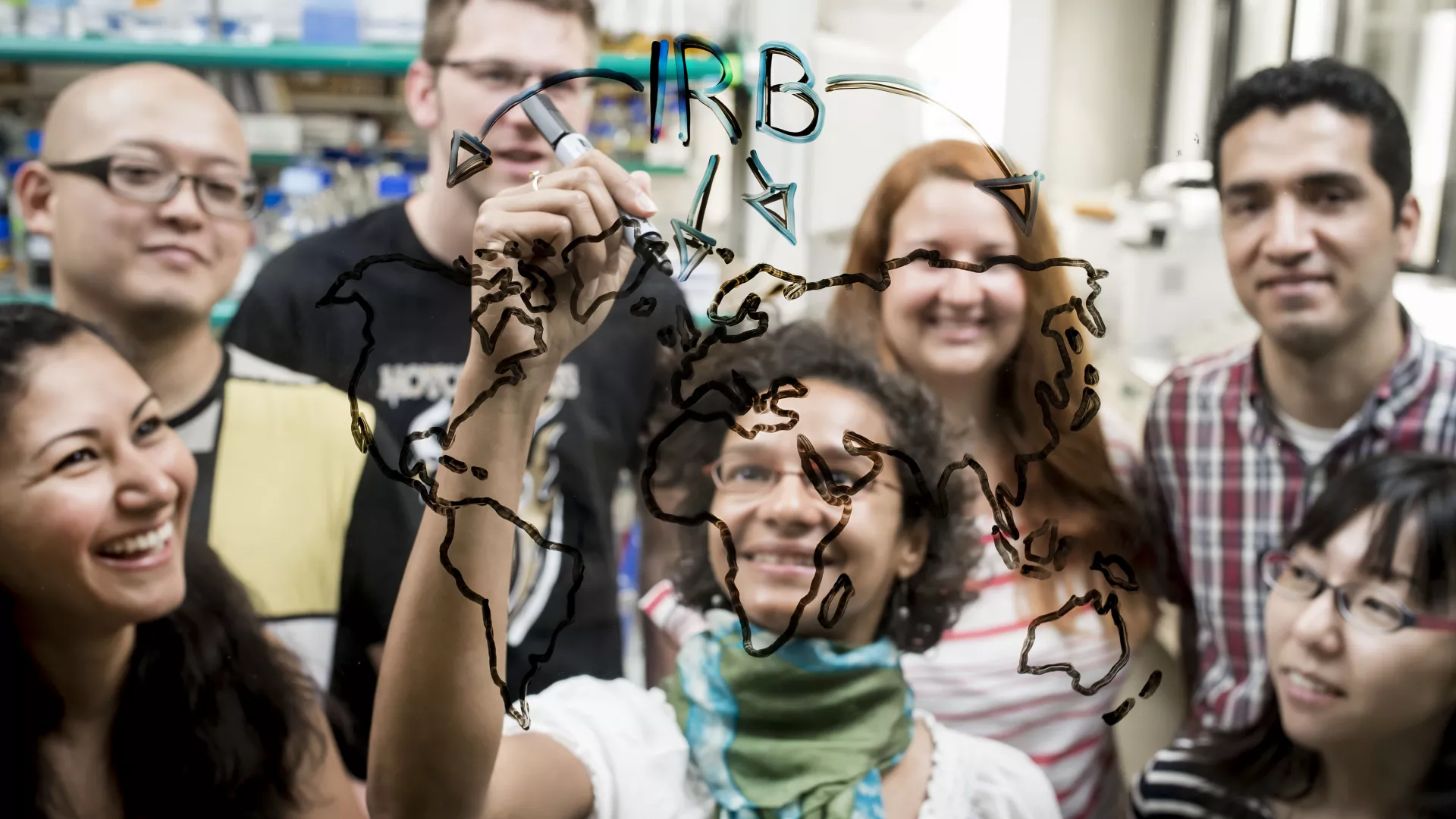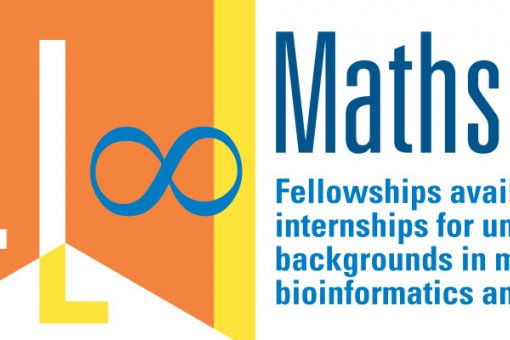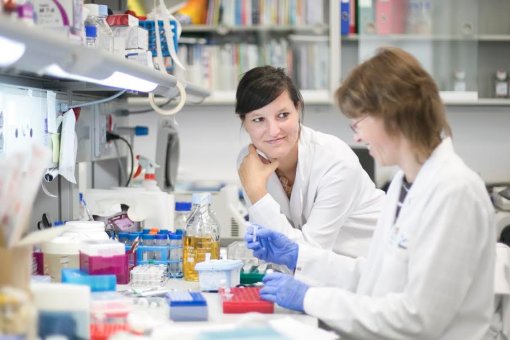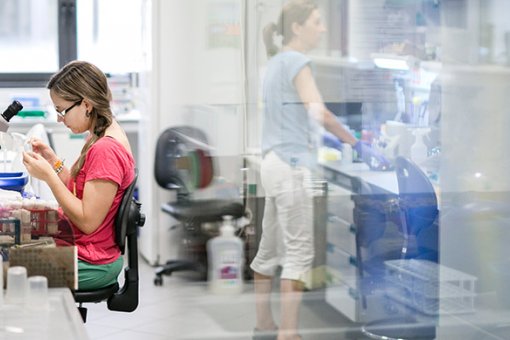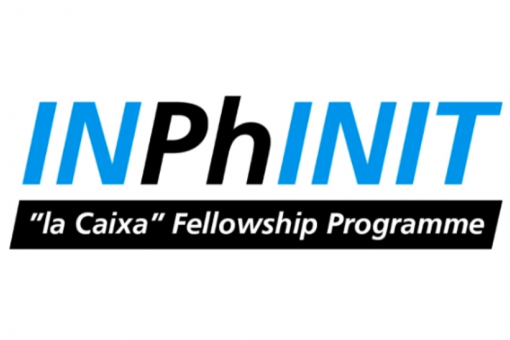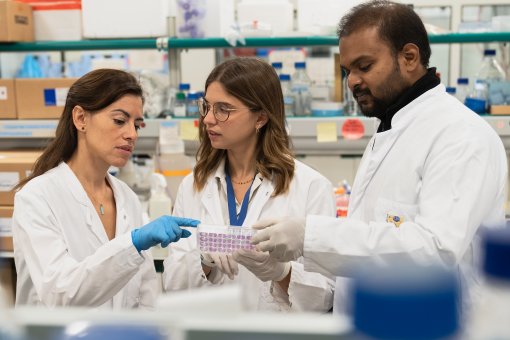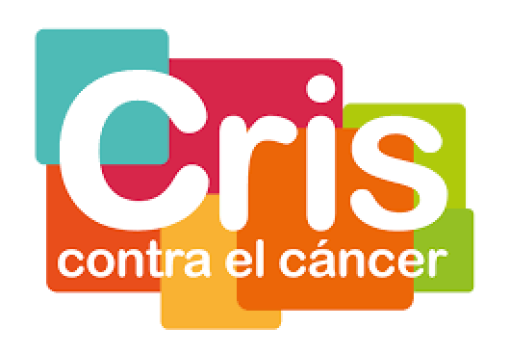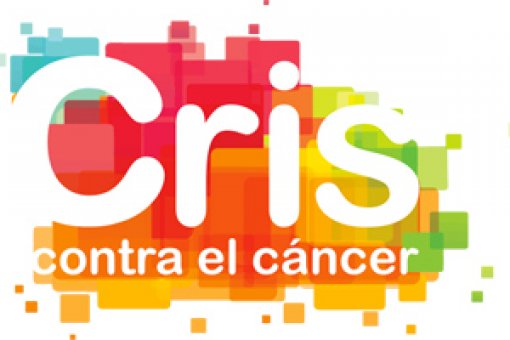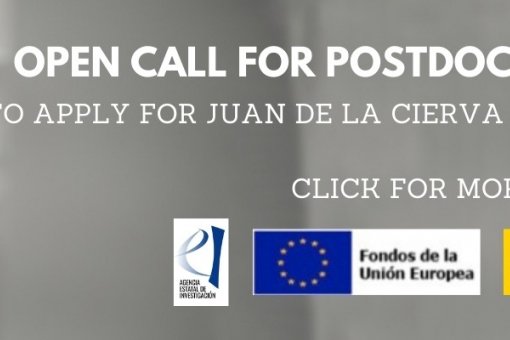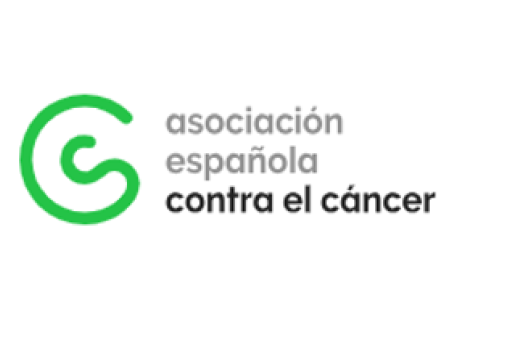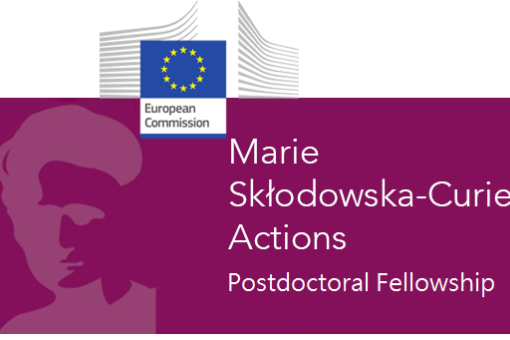L’IRB Barcelona és un institut multidisciplinari brillant on els científics aborden de manera col·laborativa problemes biomèdics urgents i que suposen un repte, per tal de proporcionar solucions innovadores a necessitats mèdiques no satisfetes.
Uneix-te a l’IRB Barcelona i fes la teva recerca en un dels seus 28 laboratoris d’última generació que aborden temes d’avantguarda en càncer/metàstasi, envelliment i reprogramació cel·lular, metabolisme, diferenciació cel·lular o genòmica, entre d’altres.
Als investigadors, en qualsevol nivell de la seva carrera, se’ls oferirà una formació personalitzada i àmplies oportunitats de desenvolupament professional.

Programa Universitari
Un programa de formació per a futures generacions d’investigadors
Els programes de beques universitàries de l’IRB Barcelona s’adrecen a estudiants de grau i màster amb fortes capacitats i interès en els camps de la biologia, la biomedicina, la química, la física, la farmàcia, la biologia estructural, les ciències computacionals o altres àrees relacionades.
Els becaris tenen l’oportunitat de participar en activitats institucionals internes. A més, reben formació complementària en desenvolupament professional mitjançant la sèrie de cursos interns o ad-hoc organitzats.
Contacte
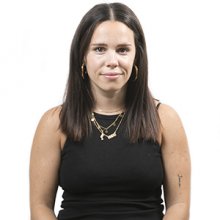

+info: phd@irbbarcelona.org
Oportunitats programa universitari
Programa Predoctoral
Una base sòlida per a una carrera reeixida en biomedicina
Oportunitats programa predoctoral
La formació és una forma de vida a l’IRB Barcelona. En unir-se a l’Institut, els joves científics s’introdueixen en un món d’oportunitats en què poden investigar i formar-se en un entorn internacional i multidisciplinari únic. Els estudiants de doctorat reben una tutela estreta, tenen accés a una àmplia varietat d’activitats i serveis científics i poden aprofitar una extensa xarxa de contactes acadèmics i industrials. El nostre objectiu és estimular els joves talents per dur a terme projectes creatius d’excel·lència i convertir-se en futurs líders en el món acadèmic o industrial.
Prop de 100 estudiants (gairebé la meitat de nacionalitats no espanyoles) treballen actualment en la realització de les seves tesis doctorals a l’IRB Barcelona.
Els estudiants treballen en un projecte de recerca que s’escull de mutu acord amb el seu respectiu líder de grup. A més, la participació en totes les activitats del dia a dia dels seus laboratoris els permet aprendre diverses habilitats i tècniques.
A banda de les convocatòries predoctorals internes de l'IRB Barcelona, els estudiants de doctorat que s'incorporen a l'Institut també poden presentar-se a convocatòries competitives externes que concedeixin beques de doctorat. Els exemples més freqüents a l'Institut són les beques predoctorals del Ministeri d'Economia i Competitivitat i del Ministeri d'Educació i Cultura, entre altres. Els estudiants de doctorat que s'incorporen a l'IRB Barcelona han de complir amb les normes d'admissió de l'Institut.
Tots els doctorands (per a qualsevol beca o contracte no institucional) són entrevistats de manera individual (és a dir, no competitiva) per un comitè de selecció que redacta un informe per ajudar a l'IRB Barcelona a reclutar als millors candidats i garantir els estàndards de qualitat.
A banda de la supervisió diària per part dels directors de tesi, un comitè assessor de tesi realitza un seguiment dels estudis de l'alumne durant tot el seu doctorat. Aquest comitè està format per tres membres, dels quals almenys un és un cap de grup o investigador associat de l'IRB Barcelona, i un altre, un assessor extern. Al final de cada any, els alumnes elaboren un informe sobre el seu treball i el discuteixen amb el seu comitè assessor de tesi. En finalitzar el seu treball pràctic, els alumnes han d'escriure la seva tesi i defensar-la amb èxit a la universitat on estiguin matriculats.
L'IRB Barcelona no és una universitat i no pot concedir títols de doctorat. Per tant, els candidats seleccionats hauran de matricular-se en una universitat de la seva elecció per a obtenir el títol de doctor.
Les universitats locals són: Universitat de Barcelona, Universitat Autònoma de Barcelona, Universitat Politècnica de Catalunya o Universitat Pompeu Fabra.
Alhora que completen les assignatures dels seus cursos en una universitat de la seva elecció, els alumnes realitzen simultàniament la seva formació pràctica i treballen per a la seva tesi en un laboratori de recerca de l'IRB Barcelona. En general, els alumnes passen fins a quatre anys a l'IRB Barcelona, després dels quals finalitzen i defensen la seva tesi.
El títol de doctor l'atorga la universitat en la qual estiguin matriculats.
A més del treball de laboratori, els doctorands del IRB Barcelona participen en diferents activitats.
- Recés d'estudiants de doctorat. Esdeveniment de dos dies de durada que s'organitza cada dos anys per celebrar l'activitat investigadora dels alumnes de doctorat de l'IRB Barcelona. Les activitats inclouen xerrades de doctorands actuals i antics, sessions de pòsters i moltes oportunitats d'intercanvi.
- Simposi d'estudiants de doctorat. El simposi d'estudiants de doctorat és un esdeveniment organitzat bianualment pels alumnes de doctorat de l'IRB Barcelona i en el qual els joves científics tenen l'oportunitat de participar en tots els aspectes de disseny i gestió d'un esdeveniment científic complex. Els esdeveniments s'han celebrat els anys 2009, 2011, 2013, 2015, 2017, 2018 i 2019. Aquesta última edició va tenir lloc entre el 13 i el 15 de novembre a Nijmegen, Holanda (simposi ENABLE). En aquests simposis, guanyadors del premi Nobel i els millors científics es reuneixen i discuteixen amb els investigadors més joves sobre temes d'avantguarda i interdisciplinaris en un ambient relaxat i informal.
- Estades breus. S'anima els estudiants a realitzar almenys una estada a l'estranger durant la seva formació. L'estada pot estar subvencionada per beques de mobilitat o fons interns. Alguns exemples de centres amfitrions són el Massachusetts Institute of Technology-MIT (EUA) i el Weizmann Institute of Science (Israel); universitats com la Universitat de Harvard i l'ETH Zurich (Suïssa); i hospitals com l'MD Anderson Cancer Center (EUA), entre molts altres. L'IRB Barcelona també està preparat i desitjós de rebre visitants d'instituts de tot el món. Cada any acull més de 50 investigadors visitants, incloent-hi estudiants de doctorat.
- Formació complementària i cursos. L'IRB Barcelona promou una sèrie d'activitats orientades a la formació complementària amb la finalitat de reforçar el conjunt d'habilitats dels estudiants predoctorals, com els tallers sobre "Com millorar l'escriptura científica", els seminaris d'"Innovació i transferència de tecnologia" o el taller de "Comunicació científica en anglès".
- Seminaris Barcelona BioMed. Destacats científics internacionals són convidats per presentar i discutir els seus resultats i idees en una sèrie de seminaris setmanals. Aquestes sessions permeten als estudiants de doctorat conèixer els darrers avenços en les ciències de la vida i els donen l'oportunitat d'establir un contacte directe amb els ponents dels seminaris. També s'encoratja els doctorands a convidar a ponents de la seva pròpia elecció.
- Clubs de revistes. Investigadors de tots els nivells debaten sobre publicacions científiques recents en diversos clubs de revistes..
- Activitats de comunicació. Els estudiants de doctorat també practiquen les seves habilitats comunicatives amb presentacions periòdiques, tallers i assistència a esdeveniments educatius i amb participació del públic.
- Activitats socials. Els doctorands de l'IRB Barcelona també participen en activitats d'interacció social, com les sessions "cool-off" mensuals, en les quals la comunitat estudiantil es reuneix de manera informal per a gaudir d'un aperitiu i xerrar a la terrassa de l'Institut.
- Recessos de grup y de programa. Els científics de l'IRB Barcelona participen regularment en recessos, tant a nivell de grup com de programa. Aquestes activitats, que se celebren en ubicacions amb atractiu paisatgístic fora de les instal·lacions, ofereixen l'oportunitat de mantenir un intens debat científic i una interacció social, i tenen com a objectiu fomentar la col·laboració entre grups i programes.
El Consell d'Alumnes de Doctorat de l'IRB Barcelona s'encarrega d'organitzar les activitats dirigides als estudiants, com les sessions "cool-off", així com de la comunicació entre la comunitat estudiantil i la direcció de l'Institut. El Consell es va fundar el 2008 i consta de nou membres que es reuneixen mensualment per parlar de temes d'actualitat i esdeveniments futurs. Per a contactar amb ells, pots escriure a l'adreça de correu electrònic student_council@irbbarcelona.org
Organitzem activitats específiques per als estudiants de doctorat durant el seu primer any a l'Institut.
- Curs d'iniciació. Aquest curs, impartit a principis de setembre, presenta les unitats i plataformes de l'IRB Barcelona i el PCB, i proporciona informació que pot ser d'utilitat durant el període de formació del doctorand a l'Institut, així com informació sobre Barcelona.
- Rotacions de laboratori durant el primer semestre del primer any acadèmic. Les rotacions ofereixen als estudiants l'oportunitat d'experimentar diferents entorns de laboratori i enfocaments experimentals, així com de conèixer membres de laboratoris d'altres grups, fomentant així possibles col·laboracions futures.
- Programa Passes. El programa Passes funciona emparellant un estudiant de doctorat nou amb un estudiant de doctorat voluntari, anomenat "guia", que porta un any o més temps a l'IRB Barcelona.
L'anglès és la llengua de treball a l'IRB Barcelona. Algunes universitats imparteixen les classes del pla d'estudis científics en anglès, mentre que altres universitats locals donen les classes en català i/o espanyol i, algunes, en anglès. Per tant, l'IRB Barcelona ofereix a tots els seus membres l'oportunitat d'assistir a classes d'anglès i espanyol per a millorar el seu nivell d'idioma.
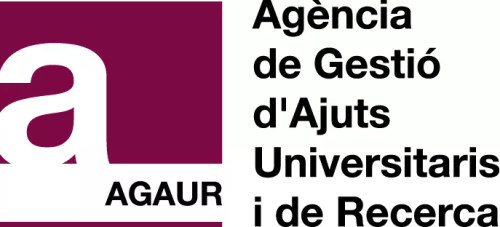

D’acord amb l’article 11 de les bases reguladores dels ajuts Joan Oró per a la contractació de personal investigador predoctoral en formació (FI 2025) RESOLUCIÓ REU/3320/2024 de 16 de setembre, es publica la priorització dels ajuts Joan Oró FI-2025.
Alhora s’obre un periode d’al·legacions que finalitzarà el 18 de febrer de 2025
Contacte


+info: phd@irbbarcelona.org
PROGRAMA IRB DREAM
Programa de beques predoctorals IRB: atraient talent internacional
El programa de beques predoctorals de l'IRB (IRB DREAM) és un programa de beques doctorals gestionat per l'Institut de Recerca Biomèdica (IRB Barcelona). Ofereix 10 beques de quatre anys en dues convocatòries separades (2021 i 2022). Aquestes beques van destinades a joves investigadors talentosos per tal de realitzar les seves tesis doctorals en un dels 28 laboratoris de l'Institut. IRB DREAM pretén revitalitzar el Programa de Doctorat actual de l'Institut, que ja és reconegut per l'excel·lència en la recerca, afegint-hi una dimensió innovadora, concretament la personalització tant de l'oferta formativa com del desenvolupament professional.
L'IRB Barcelona ja compta amb un sòlid Programa de Doctorat, que s'ha consolidat des del seu llançament el 2008. A més de les activitats de recerca realitzades pels investigadors predoctorals (d'ara endavant referits com a investigadors en fase inicial, (ESRs), tenen accés a una àmplia gamma d'activitats complementàries dissenyades específicament per impulsar les seves carreres professionals. Aquestes activitats van des d'iniciatives interdisciplinàries, com rotacions de laboratori i retirs de doctorands, fins a seminaris científics d'alta qualitat i tallers de competències transferibles amb un fort enfocament en negocis i emprenedoria. El programa ja ofereix als seus ESRs eines per empoderar-los i permetre'ls continuar perseguint carreres científiques brillants.
IRB DREAM ofereix als becats:
- Condicions laborals i d'ocupació excepcionals, amb salaris que estan significativament per sobre dels estàndards nacionals.
- Excel·lents acords de supervisió i mentoria per part dels Caps de Grup altament experimentats i d’investigadors externs tant del sector acadèmic com del no acadèmic.
- Accés a laboratoris de primer nivell que duen a terme recerca multidisciplinària a la interfície entre química, biologia i medicina.
- Exposició a un entorn internacional i intersectorial i accés a una àmplia xarxa de col·laboradors internacionals, empreses i hospitals.
- Àmplia oferta formativa amb assessorament personalitzat i professional, amb l’objectiu d’identificar els cursos de formació opcional més adequats que coincideixin amb els interessos i habilitats dels becats.
- Suport personalitzat per al desenvolupament professional a través dels Assessors Professionals de l'IRB.
- Cursos d'idiomes gratuïts (català, castellà i anglès) oferts a l’Institut i sense cap cost.
- Activitats socials, com les "Cool off" mensuals, on els membres es reuneixen informalment per prendre begudes, aperitius i discutir sobre ciència a la cafeteria, la Lliga de Futbol i el viatge anual d'esquí.
- Una cultura saludable que promou i facilita el benestar com a part integral de la identitat de la institució.
- Assistència amb la reubicació i el visat per part del personal de Recursos Humans.
IRB DREAM reclutarà futurs investigadors en fase primerenca (ESRs) de qualsevol nacionalitat, gènere, cultura, religió, orientació sexual o edat per realitzar un doctorat en biomedicina. Per ser elegible per a una beca IRB_DREAM, els sol·licitants han de:
- Complir amb la norma de mobilitat: no ha d'haver residit o realitzat la seva activitat principal (treball, estudis, etc.) a Espanya durant més de 12 mesos en els 3 anys immediatament anteriors a la convocatòria.
- Complir amb la definició ESR de COFUND: en el moment del reclutament per part de l'IRB Barcelona, han d'estar en els primers quatre anys (experiència investigadora equivalent a temps complet) de les seves carreres de recerca i no haver obtingut un grau doctoral.
- Complir una de les opcions següents (requisits obligatoris segons el procés de Bolonya per poder-se inscriure en un programa de doctorat en el moment del reclutament efectiu)
- Finalització d'estudis que condueixin a un títol universitari oficial espanyol (o d'un altre país de l'Espai Europeu d'Educació Superior) que atorgui 300 crèdits ECTS, dels quals almenys 60 crèdits ECTS han de correspondre a nivell de màster.
- Finalització d'un grau en una universitat no espanyola no adaptada a l'Espai Europeu d'Educació Superior que doni accés a estudis de doctorat en Biologia, Química, Bioquímica, Farmàcia, Física, Medicina o camps relacionats a Espanya.
- Enviar la sol·licitud completa, a través de l'aplicació electrònica IRB_DREAM, abans de la data límit establerta. Es demanarà als sol·licitants que lliurin la següent informació:
- Informació personal com ara nom i cognoms, gènere, nacionalitat i dades de contacte. En aquesta secció també es preguntarà sobre les sol·licituds per a altres beques o la intenció de sol·licitar-les.
- Currículum vitae.
- Carta de motivació (màxim 2 pàgines) destacant l’experiència en recerca i els èxits acadèmics, i explicant per què estan interessats en l'IRB Barcelona i en un grup de recerca particular.
- Una còpia escanejada de l’expedient acadèmic certificat. Aquests documents han de mostrar les qualificacions obtingudes en els períodes d'examen i evidenciar que el títol requerit s'obtindrà en el moment previst de reclutament si encara no ha estat atorgat.
- Qualsevol arxiu addicional considerat rellevant per a la sol·licitud.
- Almenys dues cartes de recomanació de professors universitaris o científics que coneguin el seu treball acadèmic i puguin jutjar el seu potencial com a investigador predoctoral. Es proporcionarà una plantilla de carta, incloent-hi preguntes breus d'avaluació. Els sol·licitants seran responsables d'assegurar que els referents enviïn aquestes cartes.
- Un resum de qualsevol experiència laboral i un màxim de tres grups de recerca en els quals estiguin interessats.
Els candidats són seleccionats exclusivament per mèrit, en funció del seu currículum. Es valoren les qualificacions acadèmiques i el currículum vitae de cada sol·licitant, així com les cartes de recomanació i la carta de motivació. No s'apliquen criteris de selecció per a discriminació positiva o negativa.
Contacte millorat amb un entorn intersectorial i interdisciplinari, i mobilitat internacional mitjançant estades i noves iniciatives:
- Exposició ampliada a un entorn intersectorial a través del suport personalitzat del personal del Departament d'Innovació i l'oportunitat de visitar i fer estades en empreses i hospitals, gràcies a una nova acció estratègica que té com a objectiu augmentar la col·laboració amb el sistema hospitalari de Catalunya.
- Exposició garantida a un entorn interdisciplinari a nivell local, regional i nacional, gràcies a les col·laboracions i acords existents a Barcelona, Catalunya i Espanya. Dins de l'IRB Barcelona, els becats estaran exposats a una àmplia gamma de disciplines i tindran l'oportunitat de participar en activitats com seminaris setmanals de Node de Recerca i seminaris de Biomed, conferències anuals, rotacions de laboratori, retirs de doctorands, el Consell d'Estudiants, etc.
- Mobilitat internacional garantida, gràcies a la inclusió d'objectius en els seus plans de desenvolupament professional durant el seu primer any de doctorat, incloent-hi la participació en tallers internacionals, conferències, seminaris i activitats internacionals. Els becats també tindran estades internacionals garantides, gràcies a les assignacions específiques de costos de viatge i bonificacions. A partir del segon any de l'IRB_DREAM, els becats tindran l'oportunitat de presentar el seu pla d'estada al seu respectiu Comitè Assessor de Tesi (TAC).
Estructura de supervisió millorada amb major exposició a la dimensió 3i: L'estructura de supervisió inclourà (i) l'equip de supervisió de la tesi, format pel supervisor, que serà el Cap de Grup del laboratori que acull les activitats de recerca dels becats, així com el co-supervisor (el Cap de Grup de la institució d'estada); (ii) el TAC, responsable de les mentories, seguiment i orientació dels becats en tots els aspectes relacionats amb la seva tesi. Els TACs tindran un membre extern addicional del sector no acadèmic per reforçar la dimensió intersectorial; i (iii) suport personalitzat per al desenvolupament professional a través dels Assessors de Carrera, que guiaran els becats durant les seves carreres i els ajudaran, juntament amb l'equip de supervisió, a preparar i revisar els seus Plans Personals de Desenvolupament de Carrera (PPDCs) cada any.
- Institute for Molecular Life Sciences , Països Baixos
- Institute de Pharmacologie et de Biologie Structurale (IPBS), França
- European Molecular Biology Laboratory (EMBL-EBI), Regne Unit
- Genome Institute of Singapore (GIS), Singapur
- RMIT University (RMIT), Austràlia
- University of Copenhagen-Center for Protein Research (CPR), Dinamarca
- Politecnico di Milano (POLIMI), Itàlia
- Diabetes Complications Research Center-University College Dublin (UCD-DCRC), Irlanda
- Universidade nova de Lisboa (ITQB-NOVA), Portugal
- Centre national de la Recherche Scientifique (IGFL-CNRS), França
- Hokkaido University, Japó
- European School of Molecular Medicine (SEMM), Itàlia
- Systems Biology-University College Dublin (Systems Biology Ireland), Irlanda
- University of Helsinki, Finlàndia
- VIB, Bèlgica
Les accions Marie Skłodowska-Curie (MSCA) proporcionen beques per a totes les etapes de la carrera dels investigadors—ja siguin candidats a doctorat o investigadors altament experimentats—i fomenten la mobilitat transnacional, intersectorial i interdisciplinària. Les MSCA permeten a organitzacions centrades en la recerca (universitats, centres de recerca i empreses) acollir investigadors estrangers amb talent i crear col.laboracions estratègiques amb institucions líders a tot el món.
Les MSCA tenen com a objectiu dotar els investigadors amb les habilitats necessàries i l'experiència internacional per a una carrera exitosa, ja sigui en el sector públic o privat. El programa respon als reptes que afronten els investigadors, oferint-los condicions laborals atractives i l'oportunitat de moure's entre l'àmbit acadèmic i altres entorns.
Les MSCA estan obertes a tots els camps de la recerca i la innovació, des de la recerca fonamental fins a la seva adopció en la indústria i els serveis d’innovació. Els camps de recerca i innovació són triats lliurement pels sol·licitants (individus i/o organitzacions) de manera completament completament ascendent.
Per obtenir més informació, si us plau, visiteu les següents pàgines web:
Contact


+info: phd@irbbarcelona.org
IRB Dream Opportunities
Programa IRB Target
Programa internacional de doctorat de l’IRB Barcelona: en TARGET per a la biomedicina d’alt impacte
L’IRB Barcelona és un institut multidisciplinari vibrant on els científics aborden problemes biomèdics desafiants i urgents de manera col·laborativa per proporcionar solucions innovadores a necessitats mèdiques no resoltes.
El programa doctoral IRB-TARGET reuneix una xarxa de 21 institucions per implementar un itinerari de formació orientat a l'impacte, alineat amb l’objectiu estratègic de l’IRB d'apropar la ciència fonamental a la recerca aplicada i clínica. A través de dues convocatòries separades (2023 i 2024), IRB-TARGET oferirà 10 beques de quatre anys a candidats a doctorat excepcionals, que podran triar i construir un projecte de recerca sòlid dins d’un dels sis nodes de recerca interdisciplinària establerts a l’IRB.
IRB-TARGET està dirigit a joves investigadors amb talent que desitgin realitzar les seves tesis doctorals en un dels 28 laboratoris que aborden temes de vanguàrdia en càncer/metàstasi, envelliment i reprogramació cel·lular, metabolisme, diferenciació cel·lular i genòmica, entre d’altres. En el context de la col·laboració inter- i multidisciplinària entre grups, països (més de 100 col·laboracions internacionals) i sectors (acadèmia, indústria o hospitals), IRB-TARGET ofereix formació personalitzada i àmplies oportunitats de desenvolupament professional. Aquest programa de formació innovador destaca per fomentar estades i altres iniciatives molt valorades, destinades a enfortir les perspectives professionals dels candidats a doctorat.
IRB-TARGET ofereix:
- Condicions laborals i d’ocupació excepcionals, amb salaris que estan significativament per sobre dels estàndards nacionals.
- Excel·lents acords de supervisió i mentoria per part de Caps de Grup altament experimentats i d’investigadors externs tant del sector acadèmic com del no acadèmic.
- Accés a laboratoris de primer nivell que duen a terme recerca multidisciplinària a la interfície entre química, biologia i medicina.
- Itinerari de formació doctoral personalitzat compost per diversos components obligatoris i opcionals, categorizats en recerca, formació i compromís, que els beneficiaris completaran per complementar el seu treball d’investigació (dedicació requerida de 200 hores).
- Estada o desplaçament d’investigació obligatòria (secondments) com a part de l'itinerari de formació doctoral (laboratori de recerca, indústria o hospital).
- Integració del Pla de Desenvolupament Professional Personalitzat (PCDP) a l'estructura de supervisió i l'harmonització dels objectius de recerca i desenvolupament professional mitjançant un enfocament de formació holístic que incorpora suport especialitzat de HFP.
- Cursos d’idiomes gratuïts (català, castellà i anglès) oferts a l’Institut i sense cap cost.
- Activitats socials, com les "Cool-off" mensuals , on els membres es reuneixen informalment per prendre begudes, aperitius i discutir sobre ciència a la cafeteria, la Lliga de Futbol i el viatge anual d’esquí.
- Una cultura saludable que promou i facilita el benestar com a part integral de la identitat de la institució.
- Assistència amb la reubicació i visats per part del Departament de Recursos Humans i recolzament personalizat de benvinguda amb mentoria entre iguals.
Més informació sobre el programa internacional de doctorat de l'IRB Barcelona, amb detalls sobre la vida doctoral a l'institut, altres activitats i informació rellevant, es pot trobar aquí.

Co-funded by the European Union. Views and opinions expressed are however those of author(s) only and do not necessarily reflect those of the European Union or the European Research Executive Agency. Neither the European Union nor the European Research Executive Agency can be held responsible for them.
IRB TARGET reclutarà futurs investigadors en fase primerenca (ESRs) de qualsevol nacionalitat, gènere, cultura, religió, orientació sexual o edat per realitzar un doctorat en biomedicina. Per ser elegible per a una beca IRB_TARGET, els sol·licitants han de:
- Complir amb la norma de mobilitat: no ha d'haver residit o realitzat la seva activitat principal (treball, estudis, etc.) a Espanya durant més de 12 mesos en els 3 anys immediatament anteriors a la convocatòria.
- No estar en possessió d'un títol de doctor en el termini de la convocatòria. Els candidats que hagin defensat amb èxit la seva tesi doctoral no seran considerats elegibles, encara que no hagin obtingut formalment el títol de doctor.
- Complir una de les opcions següents (requisits obligatoris segons el procés de Bolonya per poder-se inscriure en un programa de doctorat en el moment del reclutament efectiu)
- Finalització d'estudis que condueixin a un títol universitari oficial espanyol (o d'un altre país de l'Espai Europeu d'Educació Superior) que atorgui 300 crèdits ECTS, dels quals almenys 60 crèdits ECTS corresponguin a nivell de màster.
- Finalització d'un grau en una universitat no espanyola no adaptada a l'Espai Europeu d'Educació Superior que doni accés a estudis de doctorat en Biologia, Química, Bioquímica, Farmàcia, Física, Medicina o camps relacionats a Espanya.
- Enviar la sol·licitud completa, a través de l'aplicació electrònica IRB_TARGET, abans de la data límit establerta. Es demanarà als sol·licitants que lliurin la següent informació:
- Informació personal com ara nom i cognoms, gènere, nacionalitat i dades de contacte. En aquesta secció també es preguntarà sobre les sol·licituds per a altres beques o la intenció de sol·licitar-les.
- Currículum vitae.
- Carta de motivació (màxim 2 pàgines) destacant l’experiència en recerca i els èxits acadèmics i, explicant per què estan interessats en l'IRB Barcelona i en un grup de recerca particular.
- Una còpia escanejada de l’expedient acadèmic certificat. Aquests documents han de mostrar les qualificacions obtingudes en els períodes d'examen i evidenciar que el títol requerit s'obtindrà en el moment previst de reclutament si encara no ha estat atorgat.
- Qualsevol arxiu addicional considerat rellevant per a la sol·licitud.
- Almenys dues cartes de recomanació de professors universitaris o científics que coneguin el seu treball acadèmic i puguin jutjar el seu potencial com a investigador predoctoral. Es proporcionarà una plantilla de carta per als referents, incloent-hi preguntes breus d'avaluació. Els sol·licitants seran responsables d'assegurar que els referents enviïn aquestes cartes.
- Un resum de qualsevol experiència laboral i un màxim de tres grups de recerca en els quals estiguin interessats.
Els candidats són seleccionats exclusivament per mèrit, en funció del seu currículum. Es valoren les qualificacions acadèmiques i el currículum vitae de cada sol·licitant, així com les cartes de recomanació i la carta de motivació. No s'apliquen criteris de selecció per a discriminació positiva o negativa.
Cada becat del programa IRB-TARGET construirà el seu propi itinerari de formació doctoral únic, adaptat a les seves necessitats de recerca, acadèmiques, professionals i personals. Això els prepararà per distinguir-se durant i després de la seva formació doctoral. L'itinerari personalitzat de l'IRB-TARGET estarà compost per diversos components obligatoris i opcionals que els beneficiaris completaran per complementar el seu treball de recerca, categoritzat en recerca, formació i compromís. L'itinerari serà definit en col·laboració amb l'equip supervisor i es reflectirà en el seu Pla de Desenvolupament Professional Personal (PCDP). Els beneficiaris hauran de completar una dedicació mínima requerida (200 hores) per a cada categoria i subcategoria per completar amb èxit el programa IRB-TARGET.
Els principals components d’aquest itinerari inclouen (veure taula a continuació)
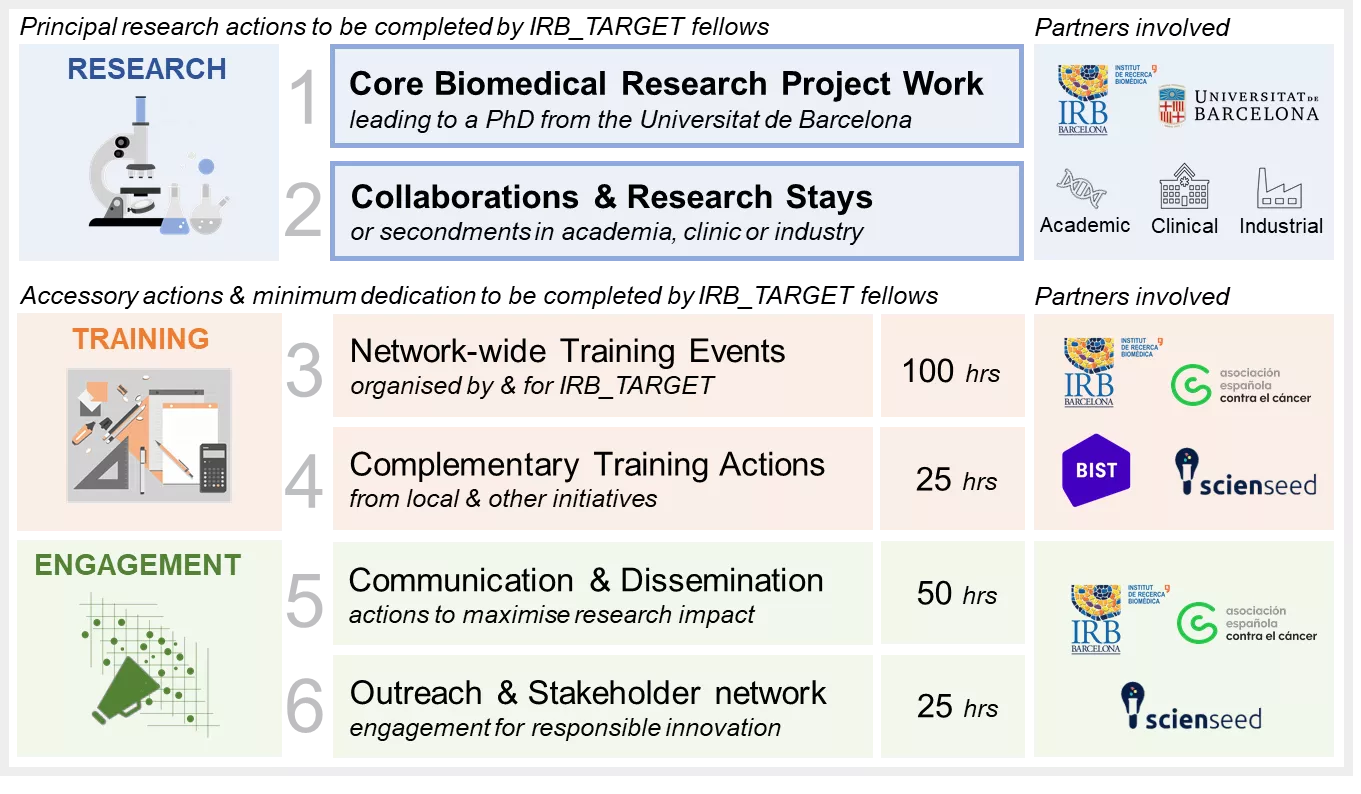
- Projecte de recerca biomèdica central.: Els beneficiaris emprendran un projecte de recerca en un camp determinat sota la supervisió d'un Cap de Grup, que conduirà a l'obtenció d'un doctorat a la Universitat de Barcelona. Enriquiran aquesta formació investigadora mitjançant la participació setmanal en reunions de grup (laboratori), seminaris interdisciplinaris i plenaris, retirs de doctorat i simposis.
- Col·laboracions i estades en acadèmia, entorn clínic o indústria (1-3 mesos):: Mitjançant una estada curta, els beneficiaris IRB-TARGET hauran de completar una estada de recerca obligatòria com a part del seu itinerari de formació doctoral, llevat que sigui explícitament desaconsellat pel seu Comitè Assessor de Tesi (TAC).
- Activitats de formació en xarxa organitzades per l’IRB-TARGET (100 hores): Aquestes activitats de formació obligatòries proporcionaran als beneficiaris coneixements, habilitats i experiència en diverses àrees bàsiques que són essencials per a la seva formació doctoral, incloent-hi integritat de la recerca, gènere en la recerca, habilitats emprenedores, ciència oberta i gestió de dades de recerca, i comunicació.
- Accions de formació complementàries d'iniciatives locals i altres (25 hores):: Els beneficiaris tindran l'oportunitat de triar les sessions i temes de formació que millor s'adaptin a les seves necessitats i interessos.
- Accions de comunicació i difusió per maximitzar l'impacte de la recerca (50 hores): Després d'haver realitzat un curs de formació obligatori en comunicació impartit per Scienseed i haver tingut l'oportunitat de perfeccionar aquestes habilitats a nivell institucional mitjançant la participació i presentació en reunions de grup, seminaris de node i seminaris plenaris, se'ls demanarà als beneficiaris que desenvolupin encara més les seves habilitats de comunicació i difusió.
- Compromís de la xarxa entre les parts interessades i la divulgació per una innovació responsable (25 hores): (a) Amb el suport del Departament de Comunicació d'IRB Barcelona i de l'Oficial de Participació Pública en particular, els beneficiaris IRB-TARGET contribuiran a accions de divulgació per difondre la ciència al públic general. (b) Per involucrar-se amb els interessats i/o usuaris finals dels investigadors biomèdics, els beneficiaris IRB-TARGET organitzaran, conduiran i amplificaran l'impacte d'un programa de tertúlia en línia per discutir temes importants respecte a la ciència, la recerca i les polítiques amb convidats que representin els principals interessats.
Cada becat compta amb els següents suports en la implementació i revisió del seu PCDP: el Cap de Grup i el(s) co-supervisor(s), incloent-hi el(s) laboratori(s) de l’estada; el Comitè Assessor de Tesi (TAC); i l'equip de suport professional.
Els beneficiaris IRB-TARGET obtindran el títol de doctor per la Universitat de Barcelona. Podeu trobar més informació sobre els programes de doctorat disponibles en aquesta universitat aquí.
Fundació de Recerca Clínic Barcelona-Institut d’Investigacions Biomèdiques August Pi i Sunyer
Fundació Privada per a la Recerca i la Docència Sant Joan de Déu (FSJD-CERCA)
Fundació Privada Institut d’Investigació Oncològica de Vall d’Hebron (VHIO)
Radboud University Medical Centre (Radboudumc)
Josep Carreras Leukaemia Research Institute
European Molecular Biology Laboratory
University of Groningen, Groningen Research Institute of Pharmacy (GRIP)
School of Biomedical Science, McGill University
National University of Ireland Galway
Università degli Studi di Torino, Molecular Biotechnology Center (MCB)
Les accions Marie Skłodowska-Curie (MSCA) proporcionen beques per a totes les etapes de la carrera dels investigadors—ja sigui per a candidats a doctorat o investigadors altament experimentats—i fomenten la mobilitat transnacional, intersectorial i interdisciplinària. Les MSCA permeten a organitzacions centrades en la recerca (universitats, centres de recerca i empreses) acollir investigadors estrangers amb talent i crear col.laboracions estratègiques amb institucions líders a tot el món.
Les MSCA tenen com a objectiu dotar els investigadors amb les habilitats necessàries i l'experiència internacional per a una carrera exitosa, ja sigui en el sector públic com al privat. El programa respon als reptes als quals s'enfronten els investigadors, oferint-los condicions laborals atractives i l'oportunitat de moure's entre l'acadèmia i altres entorns.
Les MSCA estan obertes a tots els camps de la recerca i la innovació, des de la recerca fonamental fins a la seva adopció en la indústria i els serveis d'innovació. Els camps de recerca i innovació son triats lliurement pels sol·licitants (individus i/o organitzacions) de manera completament ascendent.
Per a més informació, si us plau, visiteu les següents pàgines web:
Contact


+info: phd@irbbarcelona.org
IRB Target Opportunities
Programa Postdoctoral
Suport i oportunitats per a postdoctorats en una etapa crítica de la seva carrera
Els becaris postdoctorals que s’uneixen a l’IRB Barcelona tenen accés a les oportunitats de formació avançada en recerca i desenvolupament professional de l’Institut, tot en un competitiu entorn internacional.
Conscient que els postdoctorats es troben en una etapa crítica de la seva carrera professional, l’IRB Barcelona vol proporcionar-los el suport científic, tècnic i administratiu que necessiten per excel·lir. Els postdoctorats solen unir-se a l’IRB Barcelona amb una beca externa obtinguda a través d’agències nacionals i internacionals.
Un enfocament cap a la interdisciplinarietat
Periòdicament s’ofereixen cursos i tallers sobre temes d’interès especial per als postdoctorats. Aquests inclouen administració de laboratoris, comunicació i ciències i redacció de subvencions, entre d’altres. Els postdoctorats també poden aprofitar les nombroses conferències, seminaris i altres esdeveniments de la sèrie Barcelona BioMed.
Igual que la comunitat d’estudiants de doctorat, els postdoctorats tenen un interès actiu per promoure activitats de cohesió entre els seus companys. En aquest sentit, el Consell Postdoctoral organitza esdeveniments i activitats científiques i socials i fa de contacte amb l’administració de l’IRB Barcelona.
Poseu-vos en contacte amb el Consell Postdoctoral si voleu obtenir més informació sobre la vida dels postdoctorats a l’Institut.
Un exemple de les nombroses activitats postdoctorals és el Postdoc Day anual, que reuneix científics de tots els programes de recerca per mostrar els seus últims resultats i explorar possibilitats de col·laboració.
Contacte


+info: phd@irbbarcelona.org
